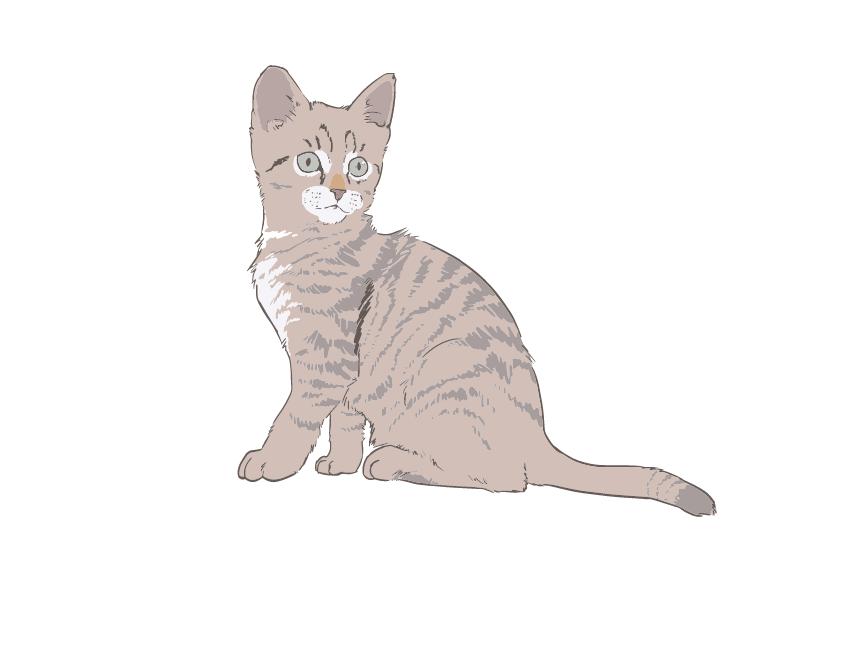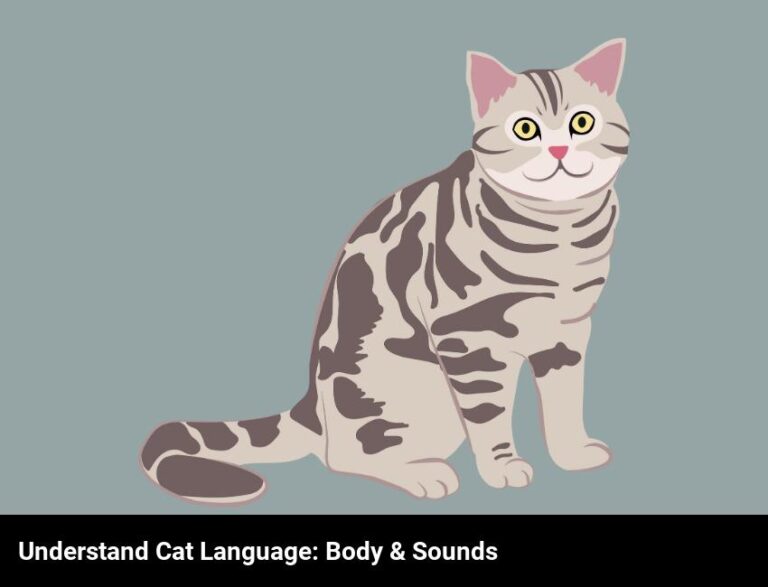The Psychology Of Cat Ownership
The psychology of cat ownership can be complex. Many people enjoy the companionship and comfort that cats provide, while others appreciate the low-maintenance care that cats require. Cats can also bring joy and provide a connection to our natural environment.
Owning a pet can be an incredibly rewarding experience, and for many people, cats make the perfect companion. As cat owners, we get to experience firsthand the joy, companionship, and unconditional love that cats bring. But beyond the simple pleasures of being a pet owner, what are the psychological benefits of owning a cat? In this blog, I will explore how cats can positively impact the mental health of their owners, as well as what are the common misconceptions about cats that may be preventing people from owning one. We will also discuss the different ways cats express their emotions and look at some research that has been done to support the psychological benefits of owning a cat. Lastly, I’ll provide some tips for cat owners on how to best care for their beloved feline.
Why do cats make such great companions?
Cats make great companions for a number of reasons. They’re low-maintenance, independent, and usually more relaxed than other animals. Cats are self-sufficient and don’t require the same amount of attention that other pets may need, allowing their owners more freedom. They’re also more laid-back than other animals, so they don’t require as much energy or stimulation.
Cats are also excellent listeners. They never judge and are always available for cuddles and head scratches. Cats can sense when their owners are feeling down or stressed, and they always show their love and support through purrs, head bumps, and cuddles. This makes cats incredibly comforting companions.
Cats are also great conversation starters. They often draw the attention of strangers and open up opportunities for their owners to make new friends and acquaintances. Plus, cats are just plain fun to be around — they’re always up for a good game of chase or an impromptu snuggle session.
In short, cats make wonderful companions because they’re low-maintenance, independent, laid-back, great listeners, and provide their owners with companionship and comfort. They’re also great conversation starters and provide endless entertainment.
How do cats positively impact the mental health of their owners?
You may have heard the phrase ‘cat therapy’ — and it’s not a joke! Cats can have a significant and positive effect on their owners’ mental health. Here are some of the ways cats make us feel better:
- Cats provide companionship: Cats can give you a sense of companionship and comfort, especially in times of loneliness or isolation. Petting cats has been shown to increase the production of oxytocin in the brain, which is associated with feelings of affection and calm.
- Cats reduce stress: Spending time with cats can be incredibly calming and can reduce stress levels. Studies have shown that stroking cats can lower your heart rate and help you relax.
- Cats make us laugh: Cats can be incredibly funny and silly, and their antics can provide you with much needed comic relief. The sound of a cat purring or meowing can also bring a smile to your face.
- Cats encourage us to be active: Cats need daily exercise and playtime, which can encourage their owners to be physically active as well. Playing with cats can be a great way to get some exercise, while also having a lot of fun.
Overall, cats can have a positive and significant impact on their owners’ emotional and mental health.
How does caring for a cat promote responsibility and accountability?
Caring for a cat can help foster responsibility and accountability in several ways.
- Feeding your cat regularly teaches you the importance of consistency, as cats thrive best with a regular schedule and routine. This responsibility can help foster a sense of accountability in other areas of life, such as school or work.
- Grooming your cat is a great way to show compassion and promote responsibility. Regularly brushing your cat helps keep their fur healthy, and can even help build a stronger bond between the two of you.
- Providing a safe and stimulating environment for your cat can help them stay healthy and happy. This involves providing them with plenty of toys and activities, as well as a clean and comfortable space for them to live in. This encourages you to be proactive about keeping your cat’s needs in mind, creating a sense of responsibility.
- Finally, taking your cat to the vet for regular checkups and vaccinations teaches you the importance of being proactive about your pet’s health. This can help foster good habits that can be applied to other areas of life, such as taking care of your own health.
In short, owning and caring for a cat can help teach responsibility and accountability in many ways. From providing a consistent and loving environment, to being proactive about their health, cats can help foster these important qualities.
How do cats help to reduce stress and anxiety?
Yes, it’s true – cats can help to reduce stress and anxiety! Owning a cat can have remarkable psychological benefits, from reducing loneliness to creating a strong bond between you and your feline friend. Here’s how cats can help:
- They provide unconditional love and acceptance – cats don’t judge their owners and will always be there for a cuddle when you need it.
- Studies have shown that petting a cat can lower a person’s blood pressure and heart rate – this can be especially helpful if you’re feeling overwhelmed or anxious.
- Cats can help to ease loneliness – having a furry companion around can make a person feel less isolated and more connected.
- They offer companionship – cats are great listeners and will always be there when you need to talk.
- They can help to foster feelings of empathy – cats require regular care, which can help to foster feelings of responsibility and compassion.
Is there any research that has been done to support the psychological benefits of owning a cat?
Yes! Studies have shown that cat ownership can lead to psychological benefits. Here are some of the positive effects that cats can have on their owners:
- Improved mental health: Studies have shown that pet owners, especially cat owners, experience lower levels of stress, anxiety, and depression. This is due to the bond that cat owners develop with their pets, which leads to improved wellbeing.
- Lower blood pressure: Owning a cat has been linked to lower blood pressure. This is likely due to the calming presence of a pet, as well as the physical contact that comes with pet ownership.
- Positive social interactions: Cats can be the perfect conversation starters. Owning an animal can lead to more social interactions, which can help to boost your mood and make you feel more connected to your community.
- Sense of purpose: Taking care of a pet can provide you with a sense of purpose, as it gives you something to focus on each day. This can lead to improved mood and better mental health.
Overall, owning a cat can come with many psychological benefits. From improved mental health to a greater sense of purpose, cats can be a great addition to your life.
What are some tips for cat owners on how to best care for their beloved feline?
Spend quality time with your cat! Cats are social animals, so they need and appreciate plenty of attention. Show them love and affection, play with them, and talk to them. This will help build a strong bond between you and your feline friend.
- Create a safe and comfortable home for your cat. Make sure the environment is free from hazards, and provide them with plenty of toys and scratching posts.
- Provide your cat with a healthy diet. Cats need a balanced diet that includes proteins, carbohydrates, and essential vitamins and minerals. Talk to your vet about the right food and feeding schedule for your cat.
- Make sure your cat is getting enough exercise. Exercise is essential for cats’ physical and mental wellbeing, so make sure they have plenty of opportunities to run around and explore.
- Keep your cat up to date on their vaccinations. Vaccinations help keep your cat safe from potentially fatal diseases, so take them for regular check-ups and make sure their vaccinations are up to date.
- Get your cat spayed or neutered. Spaying or neutering your cat can help prevent unwanted litters, and can help reduce aggressive behavior.
- Show your cat love and affection! Cats are social animals, and they thrive on attention and love. Show them love and patience, and they will reward you with loyalty and affection.
What are the different ways cats express their emotions to their owners?
Owning a pet cat is a unique experience. Not only are cats known for their independent and mysterious nature, but they also have the capacity to form strong emotional bonds with their owners. Understanding your cat’s behavior and emotions can be a rewarding experience and help you to nurture a bond between you and your pet.
One of the ways cats express love for their owners is through purring. Purring is a low-pitched, comforting sound cats make when they’re content and happy. It’s also a sign that they’re feeling relaxed and trusting of their owners.
Cats also show their emotions through their body language. When cats are happy, they tend to lower their ears, flatten their ears, and keep their tails raised. They’ll also rub against their owners, which is their way of showing affection. On the other hand, cats may express their displeasure or distress by flattening their ears, hissing, and arching their back.
Cats also communicate with their owners through vocalizations. They may meow for attention or food, chirp to communicate excitement or pleasure, or yowl to show distress. Paying attention to the type of vocalizations your cat makes can help you understand their emotional state.
Finally, cats also express love for their owners through physical contact. If a cat rubs their face against your hand, that’s their way of showing affection. Cats also knead with their paws, which is a sign of comfort and happiness.
Understanding your cat’s emotions and learning to read their body language can help you build a strong bond with your pet. By paying attention to the different ways cats express their emotions, you can learn to understand your pet and build a close relationship.
What are the common misconceptions about cats that may be preventing people from owning one?
It may come as a surprise to some, but cats actually make excellent pets for many different kinds of people. Unfortunately, there are some common misconceptions about cats that may be preventing people from owning one. Here are some of the most common ones:
- ) Cats are aloof and unaffectionate: This is perhaps the biggest misconception about cats. While they may not be as overtly affectionate as dogs, cats can form close bonds with their owners and show them lots of love and loyalty.
- ) Cats are high-maintenance: This is simply not true. Cats are generally quite low-maintenance and self-sufficient, needing only regular feedings, occasional grooming, and a clean litter box.
- ) Cats are only suited to small spaces: While cats do prefer some quiet and privacy, they can also thrive in larger spaces. With enough room to roam and explore, cats can be just as active and playful as any other pet.
- ) Cats are untrainable: Cats may not be as obedient as dogs, but that doesn’t mean they can’t be trained. With patience and consistency, cats can be trained to do a variety of tasks and tricks.
The truth is that cats can be wonderful companions and good for both your mental and physical health.

Frequently Asked Questions
How does interacting with cats affect a person’s emotions?
Interacting with cats has been demonstrated to have positive effects on a person’s emotions. Studies have shown that being around cats can reduce stress, loneliness, and anxiety. Additionally, petting cats is a great way to improve mood and can even increase oxytocin levels, leading to improved physical and mental wellbeing.
How do cats help people to cope with difficult life events?
Cats can be a great source of comfort and companionship during difficult times. They can provide emotional support, help reduce stress and anxiety, and can even help people dealing with depression. Cats can also act as a distraction, offering an opportunity to take a break from the worries of daily life. Owning a cat can provide a sense of purpose and connection during stressful periods, making it easier to cope with difficult life events.
What physical and mental benefits do cats provide for their owners?
Owning a cat can provide an array of physical and mental benefits. Regular interaction with cats can reduce stress levels and lower blood pressure. Additionally, cats can provide companionship, help with loneliness, and increase feelings of relaxation. Studies have also shown that cats can even help to reduce symptoms of depression and anxiety. In short, cats can do much more than just provide love and companionship – they can be a real asset to their owners’ mental and physical well-being.
How does the presence of a pet cat affect the family dynamic?
The presence of a pet cat can have a positive impact on the family dynamic. Cats can provide companionship and unconditional love, helping to reduce stress levels and increase feelings of security in a home. They can provide an emotional outlet for children, and can even help to foster feelings of responsibility and caring in the family. Additionally, cats can be great conversation starters, helping to bring family members closer together.
How does the responsibility of owning a cat shape a person’s outlook?
Owning a cat can shape a person’s outlook in many ways. It can teach responsibility, as the owner needs to take care of the cat’s needs, such as exercise, food, and health care. It can also foster empathy and compassion, as the owner develops a connection with their pet as they share life together. Additionally, the owner can learn patience, as dealing with a pet can be challenging and rewarding at the same time. Finally, it can create a sense of community and connectedness, which can improve mental health and overall outlook.







